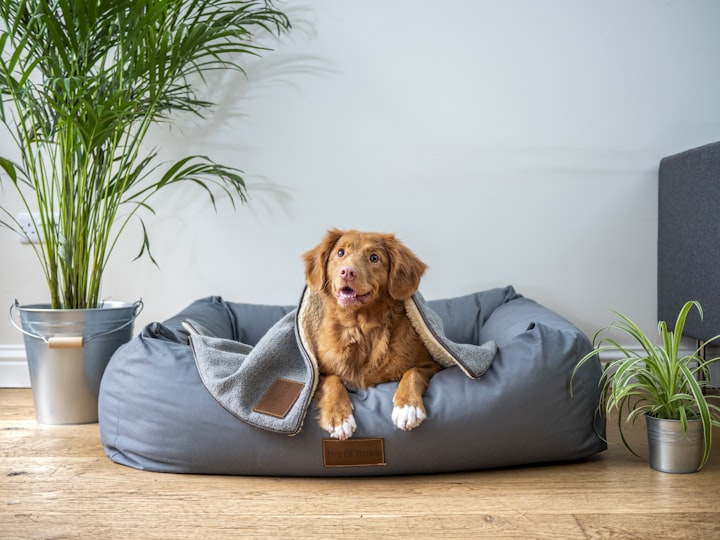Best Dog bed
with so many options, which one to choose?

The best dog bed will vary depending on the individual dog's needs and preferences. Some factors to consider when choosing a bed for a dog include size, support, and materials. A bed that is the appropriate size for the dog will provide them with enough room to comfortably stretch out and rest. A bed with good support will help to alleviate any joint pain or arthritis. Durable and easy to clean materials are also important as dogs tend to shed and drool. Memory foam or orthopedic beds can be especially beneficial for dogs with joint pain. Waterproof and/or washable covers are also a useful feature for easy cleaning. Overall, the best dog bed will provide the dog with a comfortable and supportive place to rest and sleep.
Click here to learn how to train your puppy!
Common materials used for dog beds include:
* Memory foam
* Orthopedic foam
* Cotton
* Polyester or other synthetic fabrics
* Waterproof or water-resistant materials
* Outdoor-specific materials such as nylon or canvas It is also important to consider the durability and ease of cleaning when selecting a material for a dog bed.
Click here to learn how to train your puppy!
A supportive dog bed is a type of bed that is designed to provide extra support and comfort for a dog's joints and bones. These beds often have thicker padding or memory foam to provide extra cushioning for dogs with arthritis or other joint issues. They may also have raised sides to help dogs feel more secure and relaxed. Some supportive dog beds are also designed to distribute a dog's weight evenly, which can help reduce pressure on certain areas of the body.

Dogs sleep for varying amounts of time, depending on their age, breed, and activity level. Adult dogs typically sleep for 12-14 hours a day, while puppies and older dogs may sleep for even longer periods. Some dogs may also take short naps throughout the day. It is important to note that dogs, like humans, have different sleep needs and patterns, so the amount of sleep a dog needs can vary.
Click here to learn how to train your puppy!
Dogs, like humans, require adequate sleep to function properly. If a dog does not get enough sleep, they may become hyperactive or exhibit behavioral issues such as restlessness or irritability. This can also lead to a decrease in overall health and well-being. It is important to ensure that your dog gets enough sleep, which can vary depending on their age, breed, and activity level. Consult with a veterinarian if you have any concerns about your dog's sleep habits.

Dogs may chew on beds for a variety of reasons, including boredom, anxiety, or a lack of proper chew toys. They may also be teething or trying to establish dominance over the bed. Providing them with appropriate chew toys and addressing any underlying behavioral issues can help prevent them from chewing on beds.
Click here to learn how to train your puppy!
Here are a few tips to help dogs sleep:
1. Establish a consistent bedtime routine: This can include activities such as going for a walk, feeding, and giving your dog a toy or treat to keep them occupied while they sleep.
2. Create a comfortable sleeping environment: This can include providing a soft bed or blanket, and keeping the room at a comfortable temperature.
3. Exercise your dog: Regular exercise can help tire your dog out and make them more likely to sleep through the night.
4. Avoid giving your dog food or water close to bedtime: This can help prevent them from waking up during the night to go to the bathroom.
5. Consider using a white noise machine or calming music: This can help to create a peaceful and calm environment for your dog to sleep in.
6. If you have a puppy, consider crate training: This can help them learn to feel safe and secure in their own space, which can make it easier for them to sleep.
7. Consult with a veterinarian if your dog has a history of anxiety or insomnia.
Click here to learn how to train your puppy!





Comments
There are no comments for this story
Be the first to respond and start the conversation.